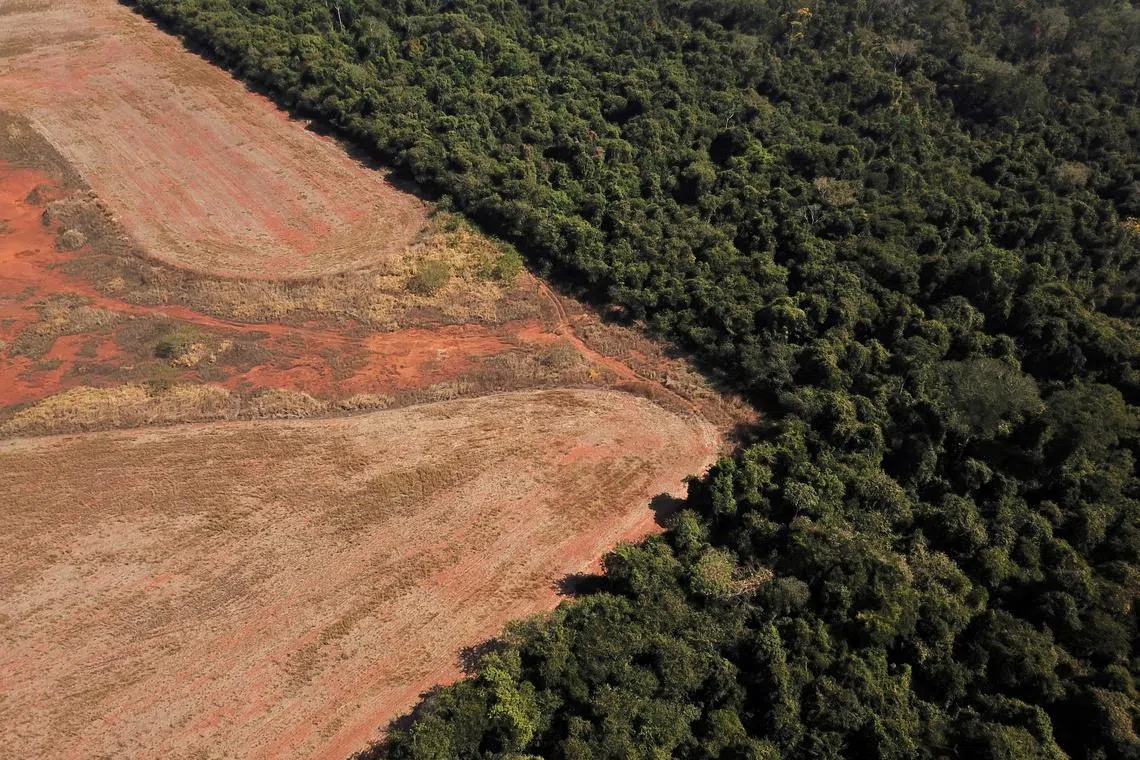Deforestation of Brazilian Amazon retreats from 15-year high
Sign up now: Get ST's newsletters delivered to your inbox

Destruction of Brazil's rainforest declined 11 per cent from a year earlier to 11,568 square kilometres.
PHOTO: REUTERS
SAO PAULO - Deforestation in Brazil’s Amazon rainforest fell in the 12 months through July, according to government data released on Wednesday, retreating from a 15-year high under outgoing President Jair Bolsonaro.
The destruction declined 11 per cent from a year earlier to 11,568 square kilometres, according to annual data from Brazilian space research agency Inpe.
That was still more Amazon deforestation than any year from 2009 to 2020.
“It’s better to have a lower number than a higher number, but it’s still a very high number - the second highest in 13 years,” said Mr Marcio Astrini, head of environmental advocacy group Climate Observatory.
The Amazon, the world’s largest rainforest, absorbs vast amounts of carbon dioxide, a climate-warming gas that is released into the atmosphere through deforestation.
Ms Ane Alencar, science director at the Amazon Environmental Research Institute, said that there has been no change in Mr Bolsonaro’s policy of weakening environmental agencies to explain the drop in deforestation.
Ms Alencar and Mr Astrini said that it was impossible to know immediately why deforestation fell, saying perhaps weather or economic cycles could be a factor.
The annual deforestation measure produced by Inpe’s PRODES satellite monitoring programme is far more accurate than its rapid alert DETER system, which publishes weekly data.
Forest destruction is Brazil’s largest source of greenhouse gas emissions. The PRODES report released on Wednesday provides the benchmark against which Brazil measures whether it is meeting its environmental and climate commitments.
President-elect Luiz Inacio Lula da Silvahas pledged to reverse soaring deforestation under Bolsonaro, who cut spending and staff for environmental enforcement.
The average deforestation in the past four years of Mr Bolsonaro is roughly 60 per cent higher than the previous four years.
Mr Bolsonaro’s office did not immediately respond to request for comment.
“We’re already seeing the consequences of deforestation. There is more drought, shorter rainy seasons, an increase in fires, an increase in temperatures,” said Ms Mariana Napolitano, science manager at non-profit WWF-Brasil.
Mr Lula may face an uphill battle to demonstrate lower deforestation in his first year. This year’s PRODES figure extends only to July, before record-high deforestation measured from August to October by Inpe’s rapid alert system.
Those months will instead be reflected in the first annual PRODES data released under Mr Lula in 2023.
“In the first year of the Lula government it will be very difficult to have a significant decrease in deforestation” to pre-Bolsonaro levels, Astrini said. REUTERS


